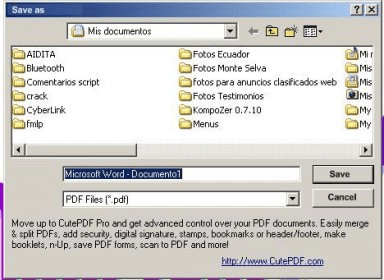

- #SCALE WITH CUTE PDF WRITER PROBLEMS HOW TO#
- #SCALE WITH CUTE PDF WRITER PROBLEMS PROFESSIONAL#
- #SCALE WITH CUTE PDF WRITER PROBLEMS WINDOWS#
These step by step instructions show you how to print to a PDF with embedded text and press quality settings. To get around this, I followed the directions for producing press quality figures found at this link.
#SCALE WITH CUTE PDF WRITER PROBLEMS WINDOWS#
(I am using Windows XP and Inkscape Version 0.48.4.) pdf did not allow me to save with press quality. I used Inkscape to prepare figures for publication, however, and had significant difficulty exporting the figures with publication quality settings.
#SCALE WITH CUTE PDF WRITER PROBLEMS PROFESSIONAL#
NOCI regularly organizes retreats in which researchers come together, learn from each other’s work, and engage in social activities.I love using Inkscape to draw - it is much more intuitive than Illustrator and produces very professional results. In the second period of NOCI, the aim is to link these organs-on-chips – sometimes called a Body-on-Chip (BoC) – and to include new features increasingly mimicking physiological reality. The first half of NOCI was focused on developing technological innovations for building the devices, designing biological methods to generate the relevant cell types for building the organs, and integrating cells and devices into several realistic organs-on-chips. NOCI is a ten-year project, that is now in its second half. The aim of NOCI is to develop and interconnect human models of the heart, gut, and brain. electronics, microfluidics), and bioethics work together. genetics, neurobiology), technical disciplines (e.g. NOCI is an interdisciplinary consortium in which researchers from biomedical disciplines (e.g. The project is part of the Netherlands Organ-on-Chip Initiative (NOCI), a consortium consisting of the Leiden University Medical Center (LUMC), the University Medical Center Groningen (UMCG), the Erasmus Medical Center (EMC), the Hubrecht Institute, the Technical University Delft, and the University of Twente. Members of the department meet and exchange thoughts in various weekly and monthly departmental meetings.

Many colleagues combine working at the office and working from home. There is a positive and supportive working environment: colleagues are happy to help each other, regularly have lunch together, and for instance bring and eat cake together to celebrate their birthdays. Members of the department conduct research on a diverse range of bioethical issues, provide ethics consultation services, and teach in different study programs. The department of Ethics & Law at the LUMC is an interdisciplinary research department that includes philosophers, ethicists, lawyers, and a medical historian. You will study the relevant ethics-related literature, conduct qualitative research, and stipulate recommendations to translate organs-on-chips from basic research into clinical care and society in an ethically responsible way. In this project, you will identify and evaluate the ethical implications of organs-on-chips by conducting empirical ethics research and normative analyses. Organs-on-chips also raise ethical questions, for instance with regards to their use in precision medicine, the appropriate type and timing of consent from tissue donors, the possibility to withdraw consent, the moral status of organs-on-chips, their use in the creation of so-called ‘digital twins’, and (whether and if so) under what conditions organs-on-chips can replace animal testing. Moreover, organs-on-chips are mentioned as potential future alternatives to animal research. The development of ‘diseased’ organs-on-chips can also provide novel insights into disease mechanisms that could be a target for future therapies. This, in turn, could result in enhanced efficiency in drug use, which is relevant if you consider that a recent study in the US showed that the ten most frequently sold drugs in the United States were effective for an average of only 15% of the population. Organs-on-chips for instance have the potential to allow pre-testing of drugs to check their suitability for a certain patient group or even one specific patient. These models are based on stem cells and enable experimentation with biological cells and tissues outside the body. Organs-on-chips are a recent scientific and technological development in which key aspects of human physiology are modeled on a chip.


 0 kommentar(er)
0 kommentar(er)
